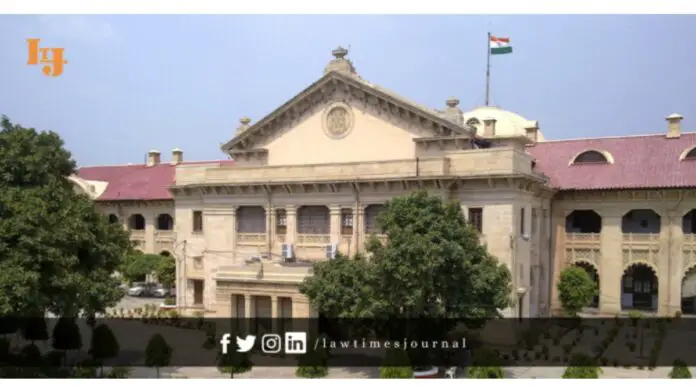
In a petition challenging the constitutional validity of three provisions of the Representation of the People Act (RP Act), 1950 [Lok Prahari v. Union of India & Ors], the Allahabad High Court today demanded responses from the Central government and the Election Commission of India.
A Division Bench of Justices Devendra Kumar Upadhyaya and Ajai Kumar Srivastava-I heard the case.
According to the petition filed by the NGO Lok Prahari, the Act’s provisions allow even a permanently non-resident Indian (NRI) person to become Prime Minister or Chief Minister.
It was also argued that sub-Section 19 (b), clause (c) of Section 16(1), and Section 20-A of the RP Act unjustly discriminate against and ban voter registration on the basis of non-residence, crime, and illegal practises.
Section 19 of the Act states that anyone who is (a) at least eighteen years old on the qualifying date and (b) ordinarily resides in a constituency is eligible to be registered on the electoral roll for that constituency.
Section 16 (1) states that a person is ineligible to register on an electoral roll if he (a) is not a citizen of India, (b) is of unsound mind and has been declared so by a competent court, or (c) is currently disqualified from voting under any law relating to corrupt practises and other offences in connection with elections.
Section 20-A of the Constitution of India offers unique provisions for Indian nationals living outside the country. It states that every citizen of India – (a) whose name is not on the electoral roll; (b) who has not acquired the citizenship of any other country; and (c) who is absent from his place of ordinary residence in India due to employment, education, or other reasons – is entitled to have his name registered in the electoral roll in the constituency in which his place of residence is located.
The petitioner claimed that, based on the Supreme Court’s ruling in Kuldip Nayar v. Union of India, the Constitution Bench’s directives, in that case, had not been executed by government officials in the last 15 years.
The Supreme Court ruled in Kuldip Nayar that “it is not a part of the federal principle that state representatives must be citizens of that state.”
The Court noted that the phrase “representative of each state” relates only to the members and does not imply any additional concept or condition of residency in that state.
The respondent parties (the Election Commission of India and the Union government) were ordered to file their affidavits by the Court. On October 18, it will hear the case.








